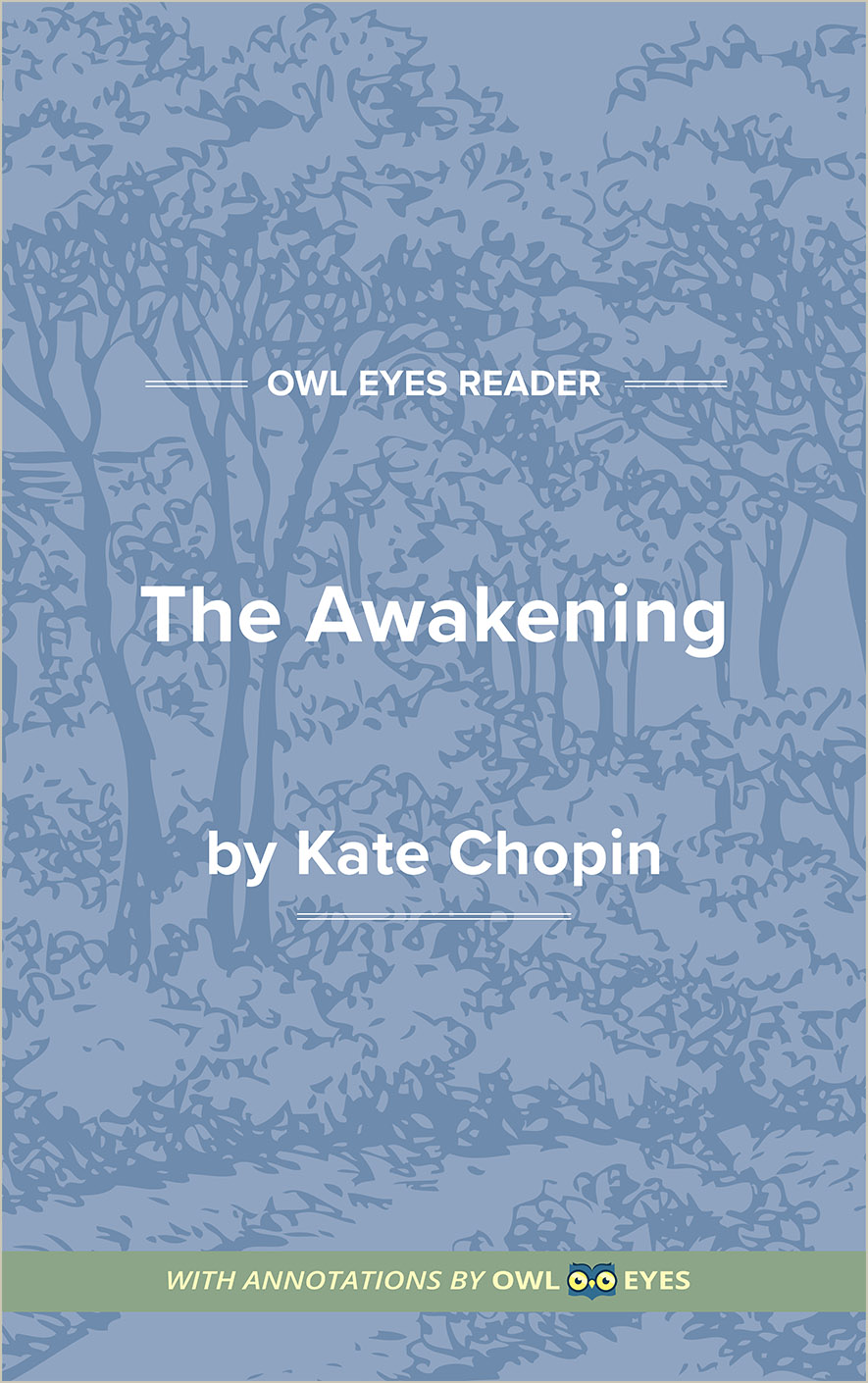Analysis Pages
Symbols in The Awakening
Symbols Examples in The Awakening:
Chapter II
🔒"as if lost in some inward maze of contemplation or thought...." See in text (Chapter II)
Chapter V
🔒"Their voices were high and penetrating...." See in text (Chapter V)
Chapter X
🔒"A certain ungovernable dread hung about her when in the water,..." See in text (Chapter X)
Chapter XIV
🔒"she was seeing with different eyes..." See in text (Chapter XIV)
Chapter XVII
🔒"Edna held out her hand, and taking the ring, slipped it upon her finger. ..." See in text (Chapter XVII)
Chapter XXI
🔒"Edna was sobbing,..." See in text (Chapter XXI)
Chapter XXV
🔒"The atmosphere of the stables and the breath of the blue grass paddock revived in her memory and lingered in her nostrils...." See in text (Chapter XXV)
Chapter XXXII
🔒"She carried away with her the sound of their voices and the touch of their cheeks. All along the journey homeward their presence lingered with her like the memory of a delicious song. ..." See in text (Chapter XXXII)
Chapter XXXIII
🔒"breaking off a spray of Mademoiselle's geranium;..." See in text (Chapter XXXIII)
Chapter XXXIX
🔒"There was the hum of bees, and the musky odor of pinks filled the air. ..." See in text (Chapter XXXIX)
"How strange and awful it seemed to stand naked under the sky! how delicious! She felt like some new-born creature, opening its eyes in a familiar world that it had never known...." See in text (Chapter XXXIX)

